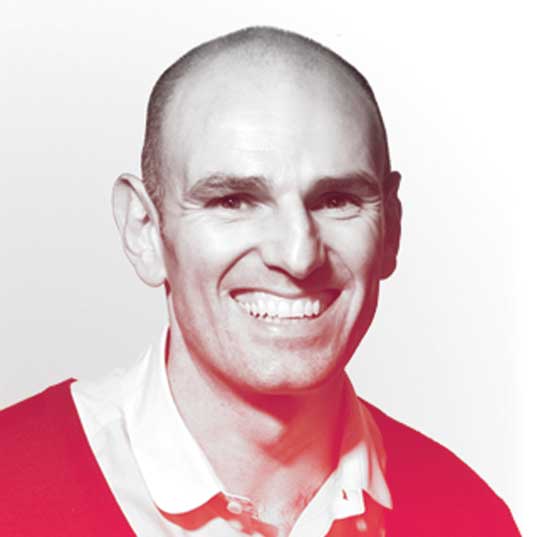7 ways to ensure a steady flow of freelance cash
Make sure your bank account isn't empty at the end of the month by following these 7 tips for cashflow management.
Sign up to Creative Bloq's daily newsletter, which brings you the latest news and inspiration from the worlds of art, design and technology.
You are now subscribed
Your newsletter sign-up was successful
Want to add more newsletters?
It's your biggest fear as a freelancer or web startup – having a month where you don't have any money coming in at all, because you've failed to manage your cashflow properly. So how do you avoid that happening?
We chatted to seven pro designers to find out how they manage their cashflow, and keep their bank accounts in the black...
01. Ask for half upfront

"We split project fees in half and insist on the first payment being made before we start a project," says Ben Coleman, design director at fffunction.
"We have 14-day payment terms on all other invoices, which helps with cashflow – although there's always a chance that things will go awry! We also set aside 35 per cent of every invoice payment to cover our VAT and Corporation Tax. Anything left over at the end of the year is a bonus."
02. Send reminders before not after

Says Gordon Wood, partner at Domani: "Structuring each project's contract with an emphasis on up-front billing is critical, but just as important is encouraging client adherence to payment terms by using key project milestones and deliverables as points of leverage.
"We've found that it's always more effective to remind clients of overdue invoices when a project is active, as opposed to after a site has launched. Implementing a system that can accomplish this begins with good planning during the contract development phase, followed up by the finance team's active engagement with project managers throughout the project's lifecycle."
03. Invoice more frequently

"Whilst short payment terms are ideal, they are rare and longer terms can be mitigated by clients agreeing to a higher frequency of invoicing," says Jason Warnes , managing director of TH_NK .
Sign up to Creative Bloq's daily newsletter, which brings you the latest news and inspiration from the worlds of art, design and technology.
"Planning and controlling variable freelance and contract costs allow us to flex with demand, turning the dial up and down without committing to an increased cost base. However smart you are with cashflow, it all means nothing if, as a business, you're not focused on growth and delivering a healthy margin."
04. Mark money into 'buckets'

"For my business, I use YNAB – budgeting software that lets you mark money into 'buckets' for whatever you need it for," says Nicky Thompson, interface developer at SymphonicKnot.
"That might be a new laptop, books, conferences or holiday pay. For me, the huge benefit is in saving for yearly expenses like taxes, liability insurance and organisation membership. It's very reassuring to know bills won't surprise me, and this means I can focus on finding and doing good work. Another tip is to dip in and out of subscription services like Office and BrowserStack, so you only pay for what you need. I use Bitbucket for source control as well as GitHub, as private repos are free."
05. Vary your terms

"We vary the payment terms depending on the size of the project," says Dan Edwards , creative director at No Pide . "If a project is estimated to take less than three months then a 50-50 agreement will be in place, but any longer and we apply a payment schedule that spans over the project duration.
"For example, 25 per cent up front, and the remaining 75 per cent split over the course of the project. These payments are based on dates set out before the start, not on deliverables. We also have agreements in place – for both ourselves and the client – as to what happens if the project overruns."
06. Bill in sprints

"To make cashflow more predictable, we price and bill based on weekly sprints," says Matt Griffin, founder of Bearded. "We have a weekly cost per person, and we know our weekly expenses for the company.
"We have a spreadsheet that charts out how many projects we can expect each month with different variables (like hiring an extra person), and what kind of profit or loss that equates to. This has been invaluable in helping us make decisions around things like hiring and taking on new projects.
07. Automate your payments

"My advice for good cashflow would be to make full use of online banking functionalities," says Jeanette Clement, head of digital at Clement Graphics .
"For instance, you can set up payment transfers to pay bills on the very last day they are due. Your suppliers will be happy and you will have maximised the funds in your account for as long as possible. However, be sure to check transfer times between different banks. "
This article first appeared in net magazine.
Like this? Read these!
- 7 free design tools for freelancers on the go
- 9 ways to promote yourself on any budget
- The ultimate guide to image resolution

The Creative Bloq team is made up of a group of art and design enthusiasts, and has changed and evolved since Creative Bloq began back in 2012. The current website team consists of eight full-time members of staff: Editor Georgia Coggan, Deputy Editor Rosie Hilder, Ecommerce Editor Beren Neale, Senior News Editor Daniel Piper, Editor, Digital Art and 3D Ian Dean, Tech Reviews Editor Erlingur Einarsson, Ecommerce Writer Beth Nicholls and Staff Writer Natalie Fear, as well as a roster of freelancers from around the world. The ImagineFX magazine team also pitch in, ensuring that content from leading digital art publication ImagineFX is represented on Creative Bloq.
